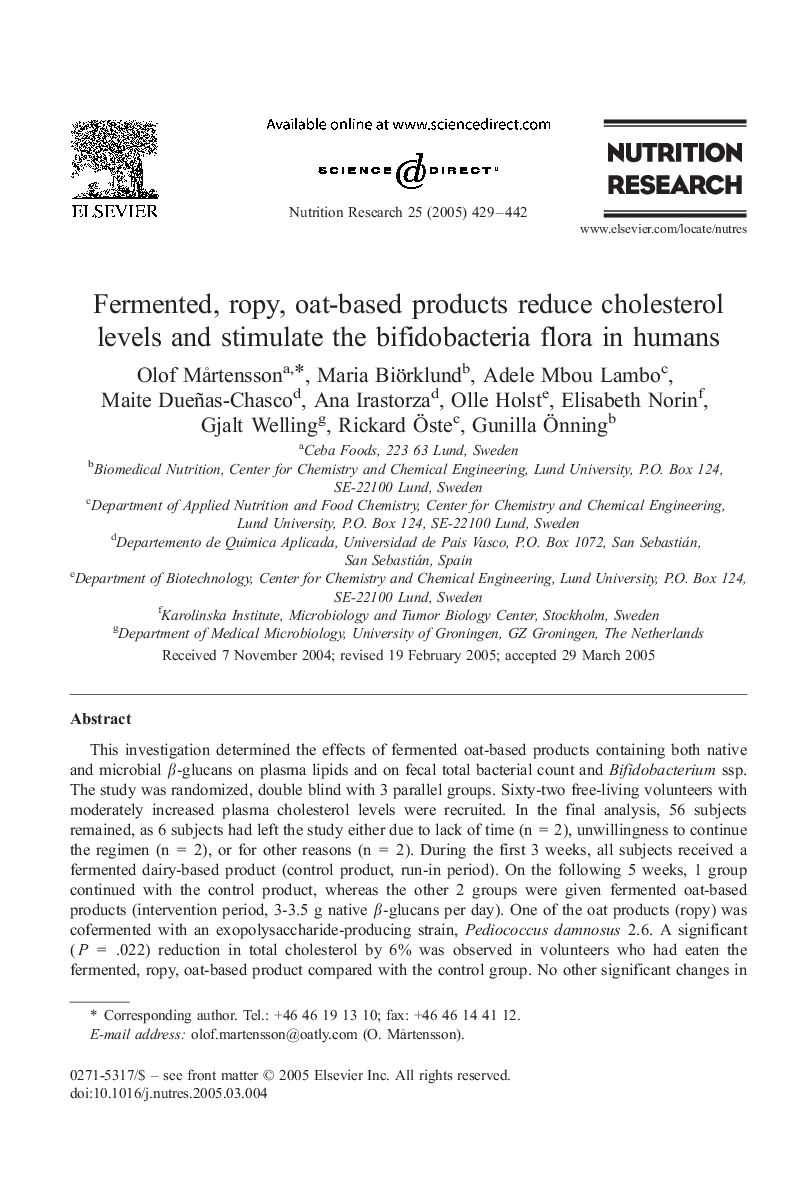| Article ID | Journal | Published Year | Pages | File Type |
|---|---|---|---|---|
| 9119012 | Nutrition Research | 2005 | 14 Pages |
Abstract
This investigation determined the effects of fermented oat-based products containing both native and microbial β-glucans on plasma lipids and on fecal total bacterial count and Bifidobacterium ssp. The study was randomized, double blind with 3 parallel groups. Sixty-two free-living volunteers with moderately increased plasma cholesterol levels were recruited. In the final analysis, 56 subjects remained, as 6 subjects had left the study either due to lack of time (n = 2), unwillingness to continue the regimen (n = 2), or for other reasons (n = 2). During the first 3 weeks, all subjects received a fermented dairy-based product (control product, run-in period). On the following 5 weeks, 1 group continued with the control product, whereas the other 2 groups were given fermented oat-based products (intervention period, 3-3.5 g native β-glucans per day). One of the oat products (ropy) was cofermented with an exopolysaccharide-producing strain, Pediococcus damnosus 2.6. A significant (P = .022) reduction in total cholesterol by 6% was observed in volunteers who had eaten the fermented, ropy, oat-based product compared with the control group. No other significant changes in plasma lipids were found. A significant increase in total bacterial count (P = .001) and Bifidobacterium ssp (P = .012) was observed in fecal samples from volunteers in the group who had eaten the fermented, ropy, oat-based product. This study shows that a fermented, ropy, oat-based product, containing both native and microbial glucans, can reduce the blood cholesterol level and also stimulate the bifidobacteria flora in the gastrointestinal tract.
Related Topics
Life Sciences
Biochemistry, Genetics and Molecular Biology
Endocrinology
Authors
Olof MÃ¥rtensson, Maria Biörklund, Adele Mbou Lambo, Maite Dueñas-Chasco, Ana Irastorza, Olle Holst, Elisabeth Norin, Gjalt Welling, Rickard Ãste, Gunilla Ãnning,
